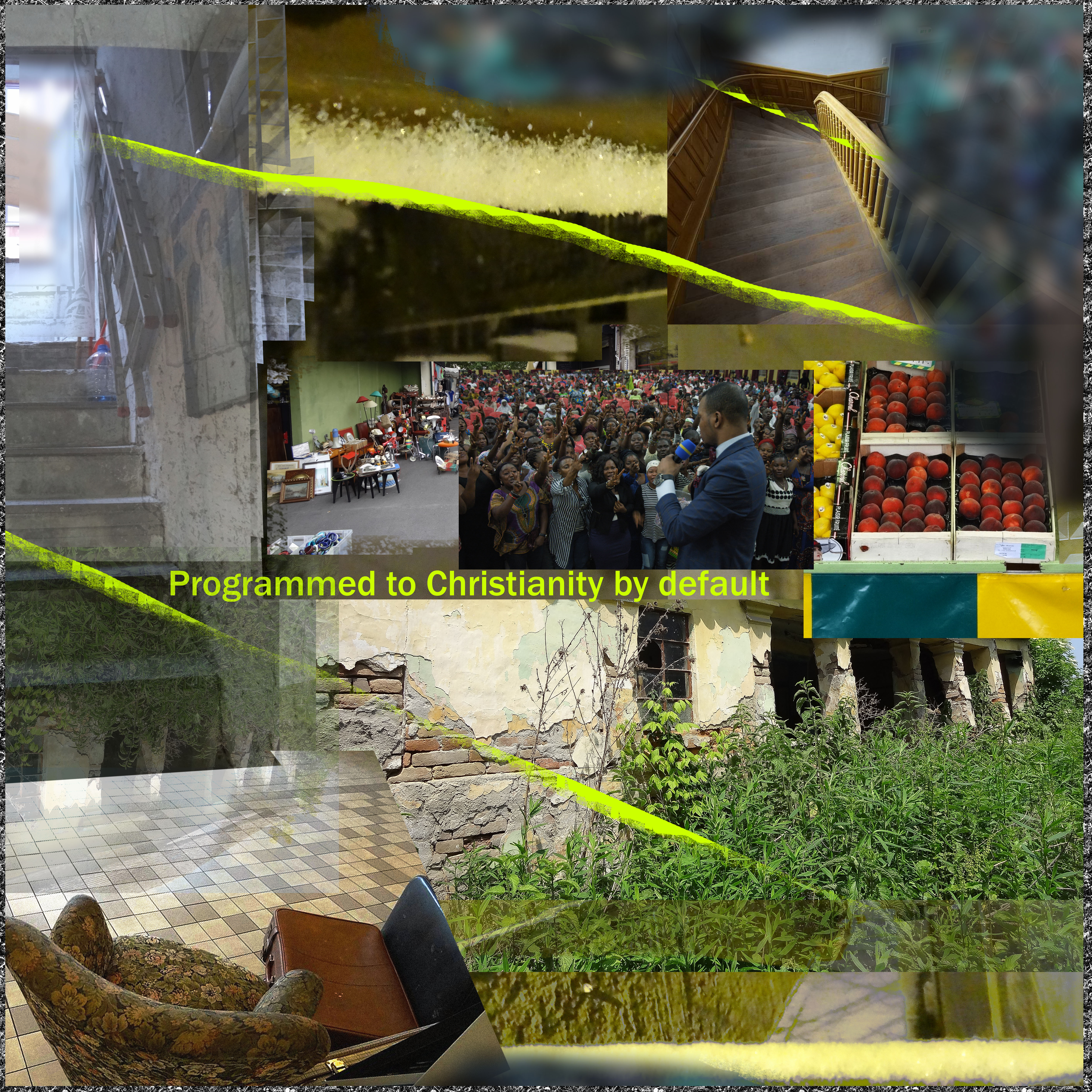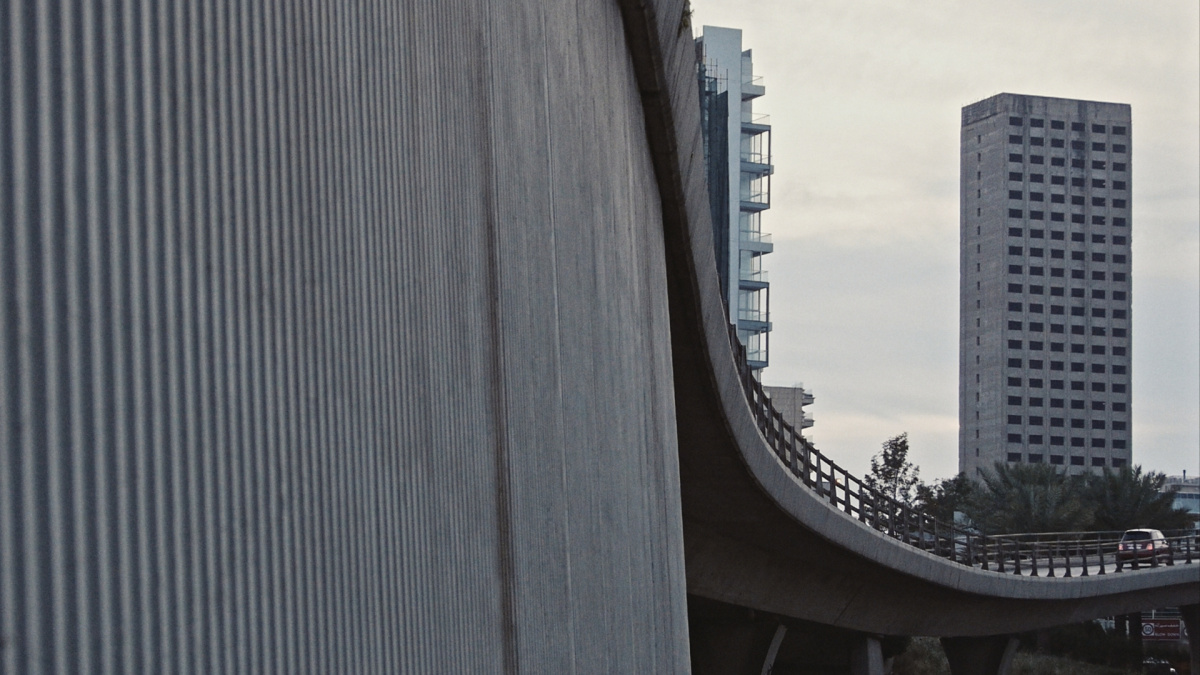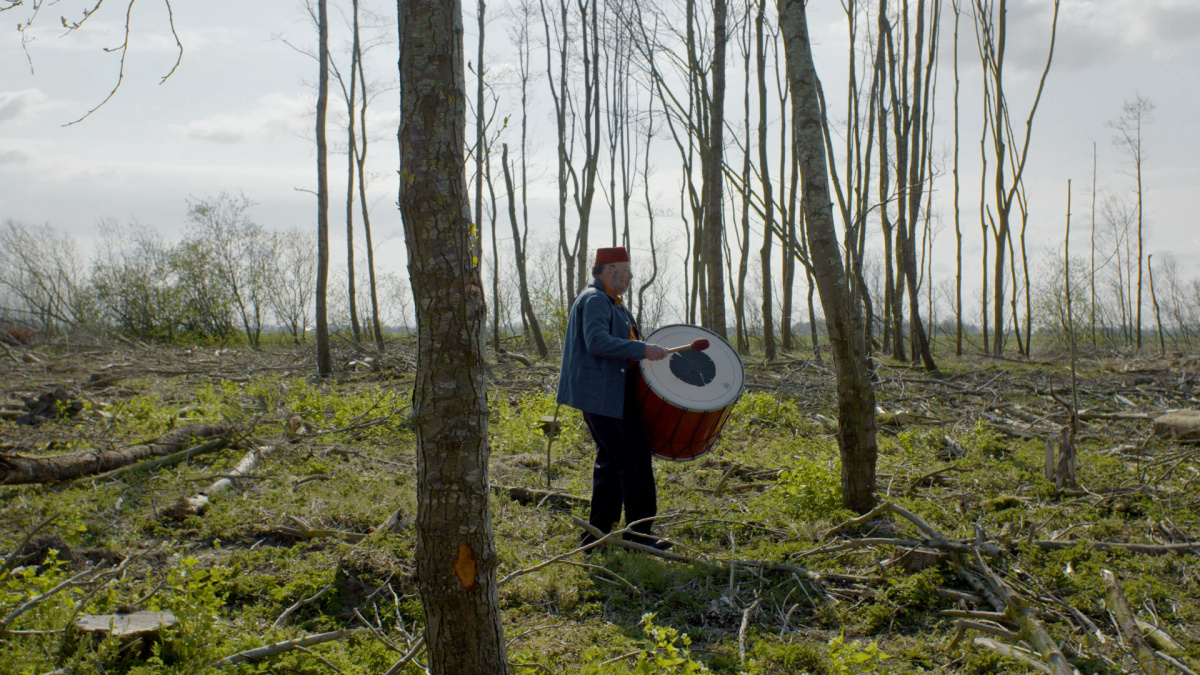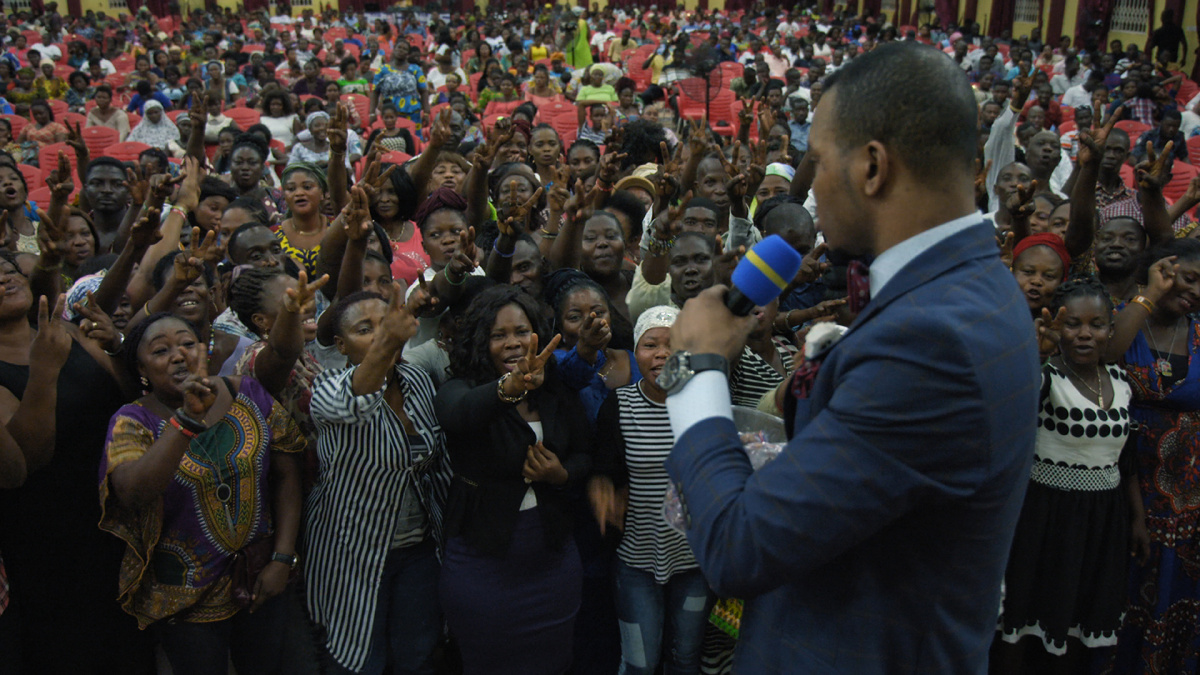
Nobody Dey Get Us
In Ghana, everyday life is widely ruled by the Christian religion. The artists portrayed in the film Contradict revolt against this religion’s tendency to dominate people’s histories – by writing their own.
→ Check all articles of this special
→ Download PDF with introduction and table of contents
One evening, as I stood by the roadside, I couldn’t help but be drawn to the words of a preacher. Amidst the honking of frustrated drivers, his voice resonated through loudspeakers mounted in the middle of a walkway. He recounted stories of how people under his direction had secured visas to «America», invariably inviting others to follow.
In Ghana, religion is the foundation on which the culture is defined. With over 70% of the population being Christians, it stands to reason that their activities will shape the country’s general worldview. Christianity has thus come to define many of its practitioners’ activities around the belief in God. These activities range from daily expressions to music, fashion, and even certain aspects of the law.
Raised in Fear of God
Many are brought up in the fear of God. When you ask someone how they are, the often-recited response is, «I am fine by God’s grace». It’s almost as if the respondent is facing society’s questioning gaze. Growing up in Ghana feels like being programmed to God and Christianity by default.
It’s a battle I struggle with, and it comes with contradictions. We «win some and lose some», as the rapper Mensah puts it in his song «Switch On». Mensah plays a crucial role in the film Contradict, which speaks to the various modes of escape adopted by the youth in dealing with this battle.
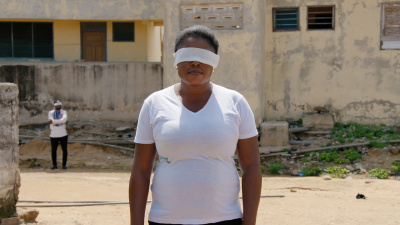
Writing Our Own Histories
Another line in the song epitomizes the unquestioned reliance on God: «we race but we don’t know what we are racing for, mommy no dey (Editor’s note: Pidgin English for «does not») get you, she says Jesus be your rescue». The singer and musician Adomaa, another of the film’s protagonists, is on a similar path for emancipation. In her song «I Am Tar» she sings: «take the words and put it in a song and let the world know there is ‹magic in your melanin›».
Through the songs and words of the featured artists, the film makes evident that what challenges the youth is a seemingly failing system. Out of these challenges has evolved the need to make contradictions visible. I would take Mensah’s sentence further: nobody dey get us but we find our own paths and try to write our own histories – histories not defined by a system which, paradoxically, acts as our motivation. Ironic, right?
The film «Contradict» by Peter Guyer and Thomas Burkhalter was officially selected at the Norient Film Festival NFF 2021. See full program here.
This text is part of Norient’s essay publication «Nothing Sounds the Way It Looks», published in 2021 as part of the Norient Film Festival 2021.
Bibliographic Record: Rhensius, Philipp. 2021. «Editorial: NFF 2021 Essay Collection.» In Nothing Sounds the Way It Looks, edited by Philipp Rhensius and Lisa Blanning (NFF Essay Collection 2021). Bern: Norient. (Link).
Biography
Links
Published on December 07, 2020
Last updated on April 09, 2024
Topics
From priests claiming to be able to shapeshift into an animal to Irish folk musicians attempting to unify Protestants and Catholics.
Snap
